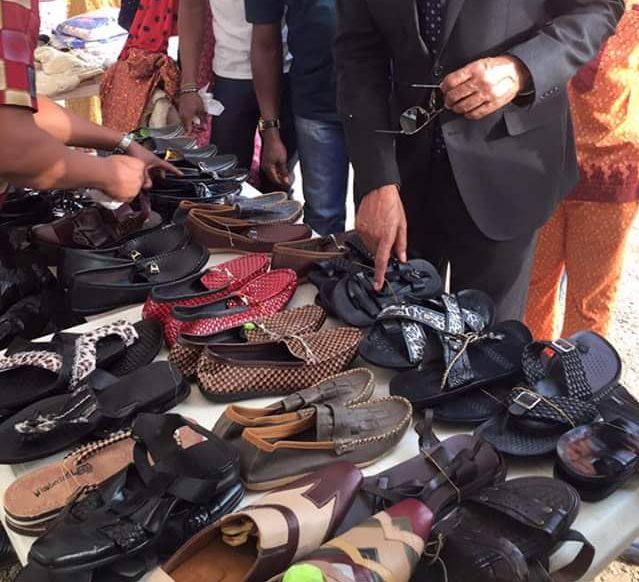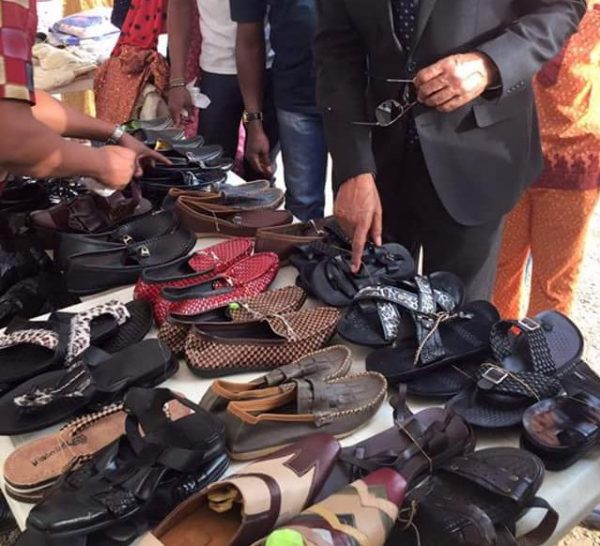Ariaria sits to the west of the older section of the city of Aba. It sprawls over a vast swathe of land, straddling three local government areas, and heaves with the noise of an ever lively humanity. For six days on a typical week, it’s the power house of South Eastern Nigeria’s leather making industry.
But as anyone with a good knowledge of Ariaria’s environment is aware, the market has more to it than just cobblers fashioning processed hides and skins into bags and sandals. There’s the pride with which Aba’s inhabitants speak of it when they’re speaking with a visitor from a distant place. And they have a right to brag: theirs is a mammoth enclave, perhaps holding well over a million traders at a time.
In fact, it’s so big that it rivals Onitsha Main Market for the status of West Africa’s largest market. While many would hand that title to its competitor to the North East of it, Ariaria remains a testament to the entrepreneurial spirit of its host city. For decades, it has drawn in entrepreneurs from surrounding regions, who have set up shop, built their ventures, and amassed wealth from what many would consider humble business.
For a market so big and well known, Ariaria’s history stretches back no more than four and a half decades. Its growth began in earnest after the destruction of the old Ekeoha market (also in Aba) forced a shift of much of Aba’s commercial activity away from the ravaged district. Earlier, the site of Ariaria was a tract of land dominated by swamp. Today, it’s been transformed into a jungle of concrete and human crowds.
Admittedly, the area isn’t exactly easy on the eye. Rows of stores, many of them compartments of poorly maintained buildings, are stocked with articles of trade. The bags, purses, shoes, sandals and belts hang downwards from wooden planks attached to the walls, or are displayed in rows and heaps outdoors. If you’re in the right store, you may get to see the leatherworkers in action, making impressive wares out of local and foreign material.
A lot of what goes on in Ariaria is sheer hard work. It’s hard to make light of the resilience required to burn long hours in the job; making fashion accessories with old manual methods is hard to overlook. The empathetic visitor may be tempted to spare a thought for the men who do the heavy lifting here- literally. Hauling of goods through hard-to-navigate streets is a soul-sapping exercise. But they carry on, chipping in more than their fair share to keep the wheels of commerce in those parts going.
Visitors to Ariaria come from other states in the region, as well as areas farther away- a good section of the country’s south in fact. There’s even patronage from Cameroun. The potential for export of Nigerian leatherwork has encouraged not a few to explore transnational trade as an option, with the market as a source for the goods they wish to sell beyond the country’s borders.
The famous apprenticeship system of the South East carries on here too, albeit to a much reduced extent. Young people, many of them teenagers, spend years with ‘masters’ as understudies. They work with these experienced leather manufactures or traders, learning the ropes of the business until they’re able to set up their own stores. As the market’s population has swelled and the times changed, more entrants to its trades have opted to forego this process, or limit its duration and scope.
The dull drab look assumed by large sections of Ariaria is merely a splinter of the many issues it faces. Most of the workmen who make shoes and sandals in its spaces still use outdated, largely inefficient methods, and produce less than what their counterparts elsewhere in the world make. Infrastructure remains a major challenge as well; the state of the market’s access roads are a stark testament to this.
Still, Ariaria thrives. Hopes remain that the area, though beset by many problems, will grow past them and live up to the great potential it undoubtedly possesses.
Featured image source: Punch Newspapers


